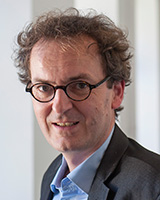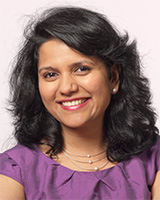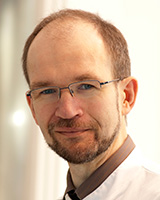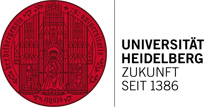Ruperto Carola approved for DFG funding
Heidelberg University succeeded in gaining support from the German Research Foundation (DFG) in the latest approval round, winning funding for three collaborative research centres. The Collaborative Research Centre “Material Text Cultures. Materiality and Presence of Writing in Non-Typographic Societies” (CRC 933) was approved for its second funding period after successfully completing the international expert evaluation. Likewise, Heidelberg University received two new collaborative research centres at the Medical Faculty Heidelberg: one will focus on pain research, the other new addition in medicine is the Transregional Collaborative Research Centre in Heidelberg, Tübingen and Mainz. Its focus will be dermatology and immunology. The DFG will provide a total of over 35 million euros in funding for the groups over the next four years. Furthermore, a new Research Training Group (RTG) will be established at the Faculty of Physics and Astronomy of Heidelberg University. It is funded by the German Research Foundation (DFG) with about 3.7 million euros over a period of four and a half years.

The “Material Text Cultures” CRC established in 2011 is focused on artefacts that bear writing from societies in which writing was or is not reproduced by industrial means. Researchers from various branches of the humanities are collaborating to develop new interpretative methods to analyse these ancient and medieval texts. The artefacts are being investigated especially with regard to their material profiles, spatial arrangements and the behaviours and activities related to them. This brings to light the complex relationships between materiality, writing and cultural practices. CRC spokesperson is medievalist Prof. Dr. Ludger Lieb from the Department of German Language and Literature at Ruperto Carola. The Heidelberg College for Jewish Studies is also a member of CRC 933, which will receive funding in the amount of approx. 11.5 million euros.

Researchers in the newly approved CRC 1158, “From Nociception to Chronic Pain: Structure-function Properties of Neural Pathways and Their Reorganisation”, will investigate how acute pain becomes chronic. One special area of exploration will be how to block or reverse this transition by studying the changes in nerve cells and pathways when pain becomes chronic. Serving as spokesperson for CRC 1158 is Prof. Dr. Rohini Kuner, Executive Director of the Institute of Pharmacology at the Medical Faculty Heidelberg. Other partners in the project include the Central Institute of Mental Health in Mannheim, the German Cancer Research Center, the European Molecular Biology Laboratory and the Max Planck Institute for Medical Research in Heidelberg as well as the Technichal University of Munich. Approximately 12.1 million euros of the total DFG funding will go toward the work of this CRC.

CRC/TRR 156, “The Skin as Sensor and Effector Organ Orchestrating Local and Systemic Immune Responses”, will investigate the role of the skin in fending off pathogens. Researchers in this transregional group will study how immune cells of the skin interact with each other as well as with other types of skin cells. Their work is also aimed at providing new insights into how different cell types in the skin influence other immune cells and hence the body’s multi-layered immune response. Prof. Dr. Alexander Enk, Executive Director of Heidelberg University Hospital's Department of Dermatology, is the spokesperson for CRC/TRR 156. Joining the Transregional Collaborative Research Centre are the universities of Tübingen and Mainz as well as the German Cancer Research Center. DFG funding for their research totals approximately 11.8 million euros.
Research and development of novel detector technologies to identify and measure elementary particles is the topic of the “HighRR – High Resolution and High Rate Detectors in Nuclear and Particle Physics” Research Training Group. 30 doctoral researchers will participate in the development of next-generation experiments in nuclear and particle physics using most advanced technologies. With its special emphasis on instrumentation, the new Research Training Group is bridging a gap between fundamental physics and engineering. It thus focuses on an area heretofore unrepresented within Heidelberg’s structured doctoral training programmes. The RTG will start in October 2015. Prof. Dr. Hans-Christian Schultz-Coulon of the Kirchhoff Institute for Physics will be the group’s spokesperson.

